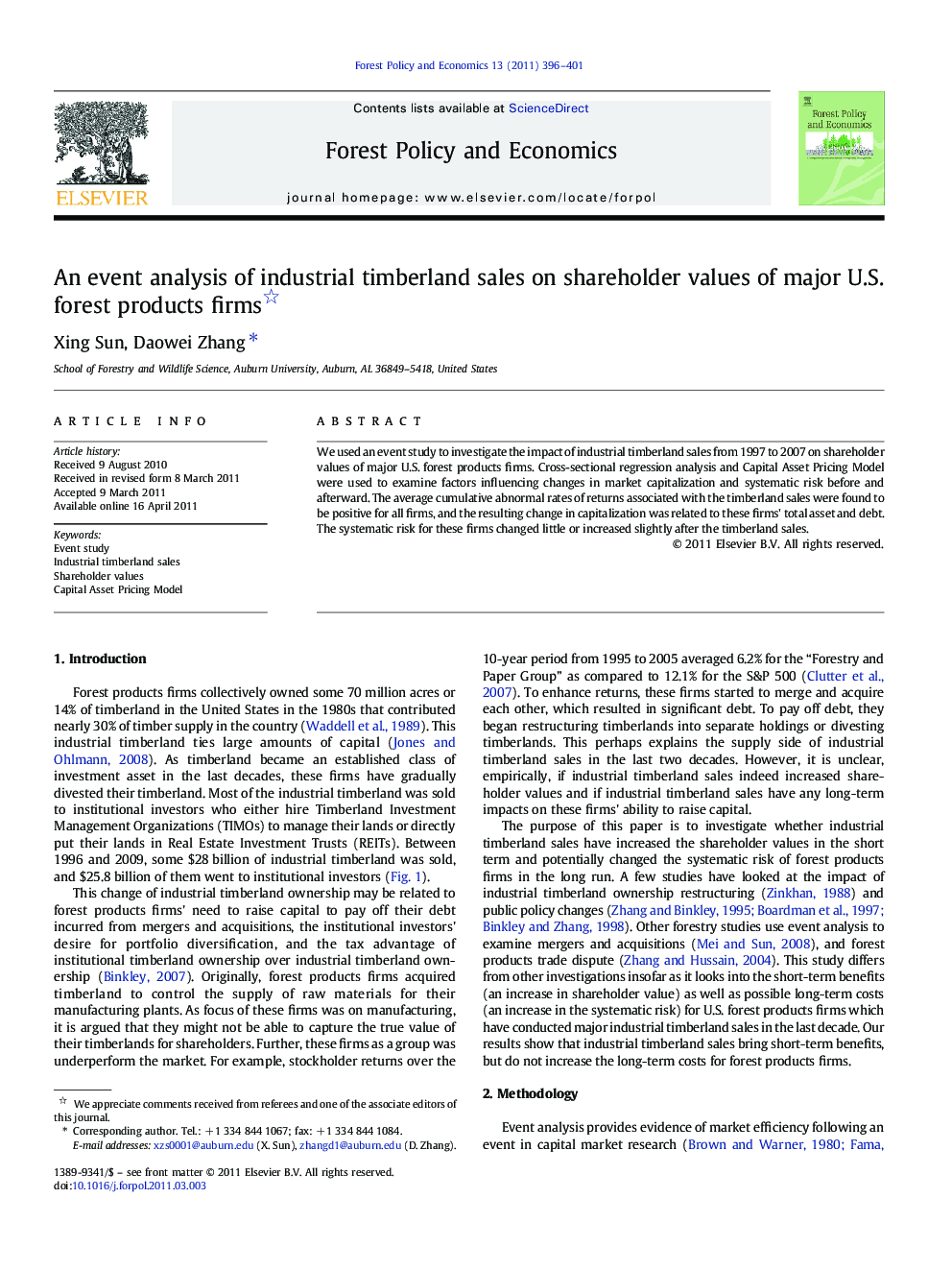| Article ID | Journal | Published Year | Pages | File Type |
|---|---|---|---|---|
| 91525 | Forest Policy and Economics | 2011 | 6 Pages |
We used an event study to investigate the impact of industrial timberland sales from 1997 to 2007 on shareholder values of major U.S. forest products firms. Cross-sectional regression analysis and Capital Asset Pricing Model were used to examine factors influencing changes in market capitalization and systematic risk before and afterward. The average cumulative abnormal rates of returns associated with the timberland sales were found to be positive for all firms, and the resulting change in capitalization was related to these firms' total asset and debt. The systematic risk for these firms changed little or increased slightly after the timberland sales.
Research highlights► The study shows that industrial timberland sales created shareholder values but added little costs to forest products firms. ► Change in market capitalization per land unit was positively related to firms' total asset but negatively to total debt. ► A change attempting to level timber sales tax between different ownerships is unlikely to bring back industrial owners.
